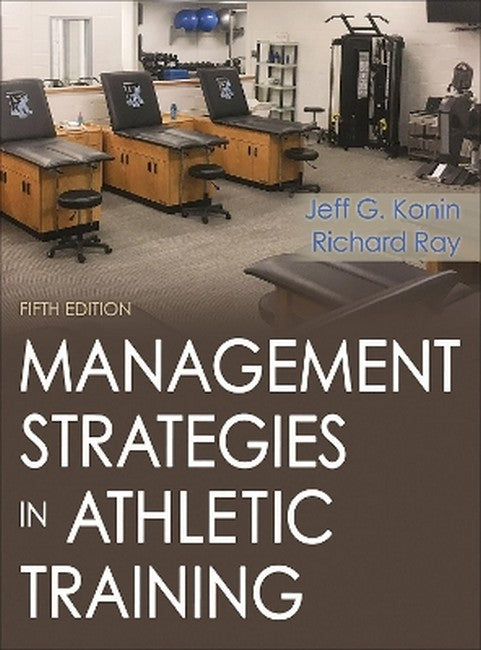Description
Chapter 1. The Profession of Athletic Training Evolution of Athletic Training Education National Athletic Trainers' Association Board of Certification Appropriate Terminology Women in Athletic Training Ethnic Minorities in Athletic Training Summary Learning Aids Chapter 2. Principles of Management Foundations of Management Three Management Roles Improving Managerial Effectiveness Summary Learning Aids Chapter 3. Program Management Vision Statements Mission Statements Planning Meeting and Conferences Program Evaluation Summary Learning Aids Chapter 4. Human Resource Management Factors Related to the Sports Medicine Organization Staff Selection Personnel Deployment Staff Supervision Performance Evaluation Fair Labor Standards Act and Athletic Training Work-Life Balance Summary Learning Aids Chapter 5. Financial Resource Management Budgeting Purchasing Supplies, Equipment, and Services Inventory Management Summary Learning Aids Chapter 6. Facility Design and Planning Conceptual Development Elements of Sports Medicine Facility Design Summary Learning Aids Chapter 7. Information Management Why Document? Two Kinds of Information Summary Learning Aids Chapter 8. Revenue for Health Care Services Insurance Systems Third-Party Reimbursement Claims Processing Purchasing Insurance Services Revenue Models Summary Learning Aids Chapter 9. Ethics in Sports Medicine Defining Ethics Relationship Between Legal and Ethical Considerations The Act of Whistle-Blowing Practicing Ethically as an Athletic Trainer Cultural Competence Summary Learning Aids Chapter 10. Legal Considerations in Sports Medicine Legal Principles Reducing the Risk of Legal Liability Strategies for Dealing With Legal Challenges Summary Learning Aids Chapter 11. Professional Advocacy How Laws Are Made Athletic Training Legislation How to Become an Advocate for the Athletic Training Profession Summary Learning Aids Chapter 12. Administration of Clinical Policies and Procedures Development of a Clinical Policy and Procedure Supervision Appropriate Medical Coverage Camp Coverage Crisis Intervention Management Summary Learning Aids Chapter 13. Preparticipation Physical Examinations Why PPEs Are Performed When PPEs Should Be Conducted Where and How PPEs Should Be Conducted What to Evaluate During the PPE Legal Considerations Summary Learning Aids Chapter 14. Drug Education and Testing Why Drug Testing Should Be Performed When Drug Testing Should Be Performed How Drug Testing Should Be Performed Pharmacological Policy Summary Learning Aids Chapter 15. Emergency Action Planning Personnel Communication Procedures Venue-Specific Plan Equipment Documentation Special Considerations Summary Learning Aids Appendix A. Health Care Professionals Appendix B. SWOT Analysis for a Sports Medicine Program Appendix C. NATA Code of Ethics Appendix D. Athletic Training: State Regulation, Scope of Practice, Board and Structure, and Regulation
Jeff Konin is chair of the physical therapy department at the University of Rhode Island. Konin is also a fellow of both the National Athletic Trainers' Association (NATA) and the American College of Sports Medicine (ACSM). He has authored eight textbooks all on the subject of athletic training and physical therapy. Richard Ray is a professor of kinesiology at Hope College, where he has worked for over 30 years. Ray is the college's head athletic trainer and has developed their academic programme for athletic training. He has authored more than 40 peer-reviewed journal articles and three books.

